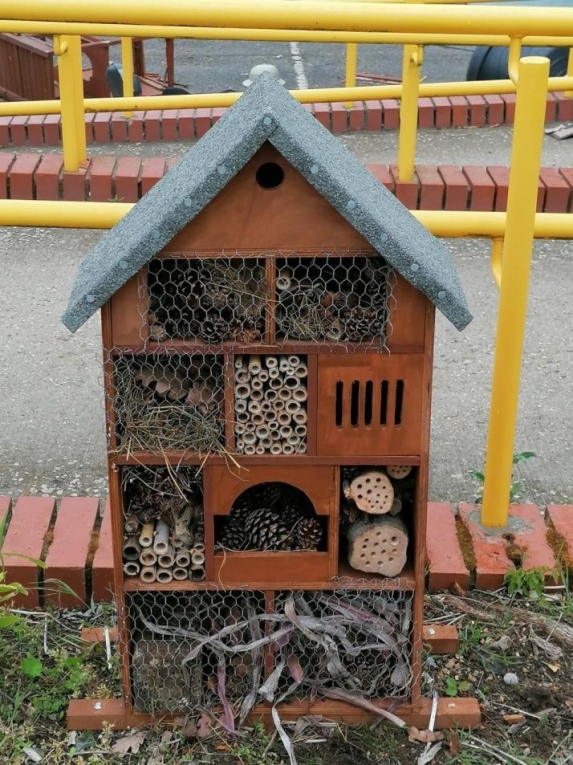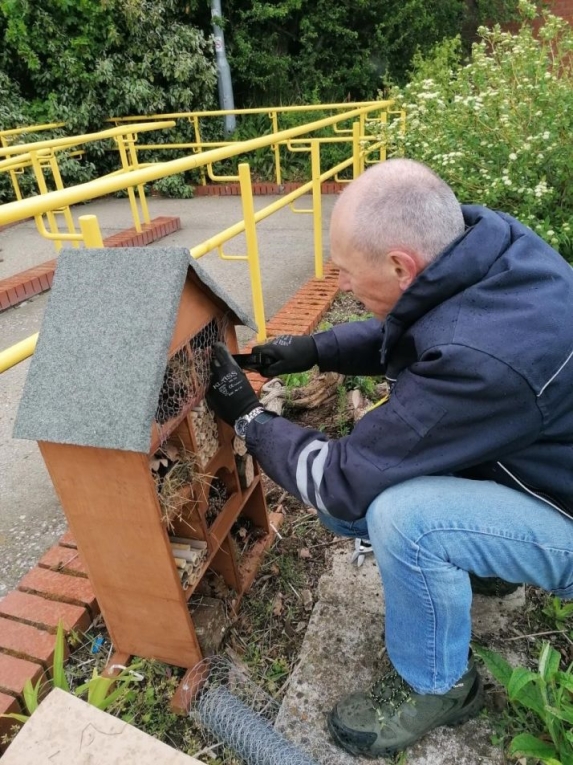Published on: Tuesday, 22 June 2021
Last updated: Tuesday, 22 June 2021


An exclusive hotel built from locally-sourced natural materials has been built at Diss rail station – to attract bees and other bugs.
Howard Whitten, a volunteer at community radio station Park Radio, which provides a team of Greater Anglia station adopters to tend the gardens at Diss rail station, has built a bee hotel.
He made the hotel from a wooden frame covered with a wire mesh, filled with natural materials such as pine cones, bamboo pieces, wood, rocks, dry grass, broken terracotta pots and moss from local woods and gardens.
It is intended to attract insects to help pollinate trees and plants in the local area which in turn will help stimulate the local foliage and wildlife.
The bug hotel is in the garden on platform 2 beside the ramp from the car park - in full view of both platforms.
Station adopter Chris Moyse said: "We’ve seen some real success with the project so far. Several bugs have been using the hotel, and passengers are really enjoying the sight of plants on their journeys.
"We hope it will encourage others to put bug hotels in their gardens."
Alan Neville, customer and community engagement manager at Greater Anglia, said: "We’re tremendously grateful to our fabulous team of rail adopters and the Park Radio volunteers at Diss for the work they do to improve the station for our customers and for the local wildlife too."
Greater Anglia’s Station Adoption scheme enables individuals or groups to adopt their local railway station and contribute to its use and welfare for the benefit of their community.
Station adopters work with Greater Anglia to bring about improvements or care for gardens and floral displays to benefit local wildlife and make stations more welcoming.
Over the years, station adopters have played an active role in keeping stations looking good through inventive gardening projects, wildlife-friendly initiatives, creative community art projects, taking part in station ‘health checks’, being the eyes and ears of their station and encouraging links between the station and local communities.
Rail stations in East Anglia are increasingly becoming havens for local wildlife thanks to the efforts of volunteers who have transformed land the equivalent of five Olympic-sized swimming pools into thriving gardens.


